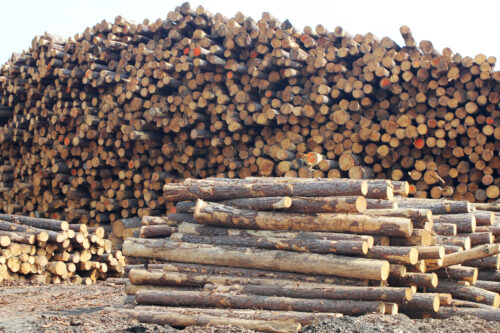 Investing in Virginia’s Future and Future Forests
Investing in Virginia’s Future and Future Forests
In 1948, Senator Garland Gray, with the backing of a large part of the forest products industry, challenged the General Assembly to match the revenue generated from a new forest products tax to make up a $200,000 budget shortfall. This additional funding was for increasing forest fire control efforts and all other phases of the work of the Virginia Forest Service.
Then in 1970, Virginia’s forest industry, pine and hardwood sawmills, and pulpwood mills approached the Virginia General Assembly to propose an expansion of the existing forest products tax to help fund a statewide reforestation program. Prior to 1970, the timber products business was booming. Residents of Virginia, as well as those of the rest of the United States, wanted and needed forest products generated from Virginia’s forestland. There was such a demand for timber products that Virginia’s forests were being harvested at an alarming rate. Acres of trees were being harvested faster than they could grow back. Forest inventory studies showed that the rate of harvesting could not be sustained into the future.
This is when Virginia’s sawmill and pulpwood mill owners came together and decided to begin investing in Virginia’s future forests and their future livelihoods. These forest industry leaders agreed to pay a tax on the trees that are harvested from Virginia’s forestlands as long as the tax revenue was matched by the Virginia General Assembly and that it funded a statewide program that would provide incentives to private landowners to reforest harvested timberland. This was the beginning of the Reforestation of Timberlands Program.
Program Success
From 1970 to 2020, Virginia’s forest industry has invested more than $54.5 million towards growing trees on private lands, and when combined with the General Assembly’s match, more than 51,000 harvested tracts, covering nearly 2 million acres, have been reforested in Virginia.
Who Pays the Tax?
The tax is paid by operators of sawmills, veneer mills, paper mills, chip mills, chemical plants, or other operations which process Virginia-grown roundwood into other products. The tax also applies to operators who purchase and ship Virginia-grown forest products outside the state in an unmanufactured, roundwood form. Loggers who sever timber from the stump could be included in this group.
The tax does not apply to individual owners of timber who occasionally sever timber from their own premises, and use it in construction or repair of their own structures, or for their own consumption.
What Gets Taxed?
- Lumber
- Timber purchased and shipped out-of-state as roundwood
- Logs converted into veneer
- Pulpwood
- Chips manufactured from roundwood
- Railroad crossties
- Posts, mine ties, and other types of timber used in mining
- Pilings and poles
- Barrel staves
- Any other type of forest product that is severed from the stump
Additional Resources
- Learn more about Virginia’s Forest Products Tax laws.
- Learn more about Virginia’s Reforestation of Timberlands program for reforesting Virginia.
Contact Us
For more information or questions, e-mail us or use our contact form.
